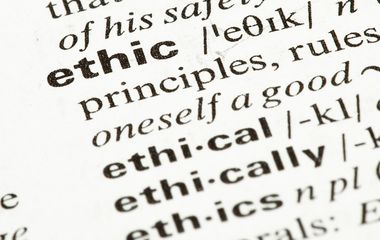
About Us
The Standards Commission is an independent body whose purpose is to encourage high ethical standards in public life through the promotion and enforcement of Codes of Conduct for councillors and those appointed to the boards of devolved public bodies.
When do the Codes of Conduct apply?
9th November 2023
All councillors and board members of devolved public bodies in Scotland are required to abide by Codes of Conduct, which outline how they should behave.
The Codes cover general conduct and require councillors and members to behave respectfully towards members of the public, council or devolved public body employees, and their colleagues. The Codes state that councillors and members should not bully or harass anyone, require them to maintain confidentiality, and to only accept gifts and hospitality in very limited circumstances. The Codes further state that councillors and members are not allowed to take advantage, or try to take advantage, of their position or influence as a councillor or member, to obtain preferential treatment for themselves or their family or friends.
In addition, the Codes require councillors and members to register and declare certain interests. The Codes also outline how councillors and members should respond to lobbying and, in the case of councillors, state how they should make quasi-judicial and regulatory decisions (for example, on planning and licensing applications)
So, do the Codes apply at all times? Well, no.
The Codes do not apply to a councillor’s or member’s family or private life. The Codes only apply if, at the time of the events in question, the councillor or member:
- is acting as a councillor or member of the relevant council or public body;
- has identified as a councillor on a social media account or in the sign-off to correspondence); or
- could objectively be considered to be acting as a councillor or member of their council or public body.
Examples of when a councillor or member is acting in that capacity are when they are:
- attending meetings of the council or public body;
- representing the council or public body at an external event;
- engaging with stakeholders, employees or officers of the council or public body; and
- (in the case of councillors) assisting constituents or undertaking site visits.
Examples of when a councillor or member could objectively be perceived to be acting as a councillor or member of the public body may be when they are:
- on the council’s or public body’s premises or at any event run by the council or public body;
- using IT equipment and / or an email account supplied by the council or public body;
- engaged in activities or commenting on matters that fall within the scope of the council’s or public body’s remit and functions;
- invited to attend an event because they are an elected member of their council or a member of their public body; and
- representing the council or public body or are speaking, or purporting to speak, on its behalf.
The Standards Commission’s Guidance on the Codes advises councillors and members to be mindful that their perception of when they are carrying out official business and when they are acting privately may be different to how it is viewed by members of the public. In determining whether a councillor or member of a public body could objectively be considered to be acting as a councillor or member of the public body (to decide whether the relevant Code applies), the Standards Commission will consider whether it would be reasonable for members of the public, with knowledge of the relevant facts, to consider that they are acting as a councillor or member of their council or public body at the time of the events in question. The fact that any witnesses to conduct may be aware that the councillor or member in question is a councillor or member of their public body is not in itself sufficient for the Codes to be engaged.
It should be noted that due to the public nature of social and print media, and the profile of councillors as local authority elected members, members of the public might automatically assume that councillors are commenting in their capacity as an elected politician in anything they post, publish or share in either forum.
It should nevertheless be noted that this does not mean that either councillors or members are restricted from holding political views. They are simply required to behave in accordance with the provisions in their respective Codes at all times in situations when those Codes could apply.

